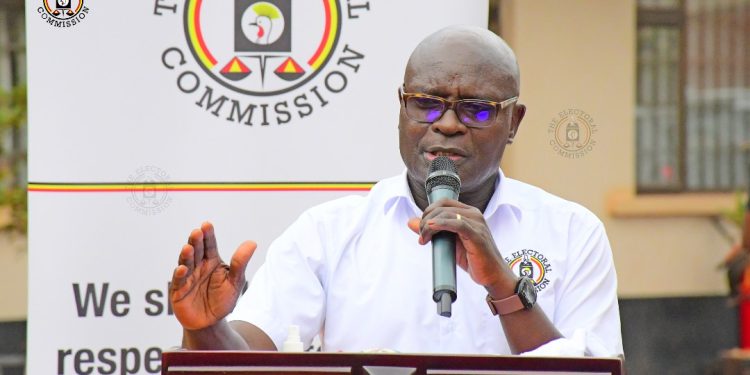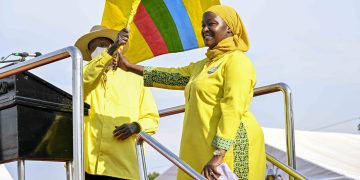Uganda’s Electoral Commission (EC) has revised the key dates for the 2025/2026 General Elections, moving presidential nominations to an earlier window in a bid to streamline the electoral process and improve campaign efficiency.
Speaking at a press briefing on Friday, EC Chairperson Justice Simon Byabakama announced that presidential nominations will now take place on September 23 and 24, 2025, more than a week earlier than the previously scheduled October 2 and 3 dates.
“The adjustment is intended to provide sufficient time for capturing nomination returns, producing ballot paper samples, harmonising campaign programmes, and signing of the memorandum of undertaking by candidates,” Byabakama stated.
The move marks a critical update in Uganda’s electoral calendar as the country gears up for a high-stakes election season that will run into early 2026.
Campaign Period, Nomination Schedule Adjusted
With the new nomination dates in place, presidential campaigns will officially kick off on October 4, 2025, and conclude on January 12, 2026, giving candidates a structured and extended period to reach voters across the country.
The EC also confirmed revised timelines for other elective positions:
Local Government nominations: September 3–12, 2025
Parliamentary nominations: September 16–17, 2025
Special Interest Group (SIG) nominations: December 8–12, 2025
General polling for presidential, parliamentary, and local government elections will be conducted between January 12 and February 9, 2026.
Qualification Rules Tightened
As part of its preparations, the Commission also clarified academic requirements for candidates, signaling a stricter approach toward verifying credentials.
All aspirants for President, Member of Parliament, and District/City Chairperson must possess at least an Advanced Level (A’ Level) certificate or its equivalent.
Candidates holding foreign or non-traditional qualifications must have them verified by the National Council for Higher Education (NCHE) in partnership with the Uganda National Examinations Board (UNEB).
“Aspirants must submit a valid certificate of equivalency at least two months before their nomination date,” Byabakama emphasized.
The EC further clarified that academic documents validated in previous election cycles will not be accepted in 2025/26. However, candidates with A’ Level or higher qualifications obtained within Uganda, or from the former University of East Africa, are exempted from re-verification.
Inclusion of Special Interest Groups Applauded
In a rare moment of praise during a tense pre-election environment, the EC acknowledged and commended the ongoing participation of Special Interest Groups (SIGs) — including youth, older persons, and persons with disabilities — in electoral activities.
The Commission urged all political actors to closely follow the roadmap and prepare adequately for the coming milestones.
“We encourage political parties, aspirants, and citizens to stay engaged and observe the set timelines,” the Commission advised.
With Uganda’s political atmosphere steadily heating up, the Electoral Commission’s updates are expected to reshape campaign strategies and raise the stakes for candidates already positioning themselves for the race.





















